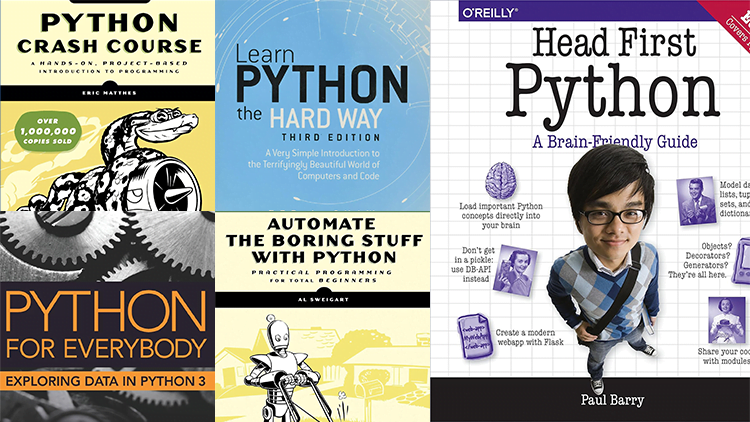Best Books to Learn Python for Beginners PDF. Python, known for its simplicity and versatility, has become a go-to language for many beginners diving into the world of programming. If you’re just starting, selecting the right learning resources is crucial. Here, we present a curated list of five highly recommended books tailored for beginners eager to grasp the fundamentals of Python programming.
Best Books To Learn Python [ 2024 ]
“Python Crash Course” by Eric Matthes:
- Dive into Python programming with a hands-on guide that emphasizes practical projects. “Python Crash Course” is beginner-friendly, making it an excellent starting point for those new to coding. The book’s project-based approach ensures that you not only learn the syntax but also apply it to real-world scenarios.
“Automate the Boring Stuff with Python” by Al Sweigart:
- Discover the power of Python for practical tasks and automation in “Automate the Boring Stuff with Python.” Al Sweigart takes a hands-on approach, introducing programming concepts through real-world examples. This book is perfect for beginners who want to see the immediate impact of Python in streamlining everyday tasks.
“Learn Python the Hard Way” by Zed A. Shaw:
- “Learn Python the Hard Way” adopts a straightforward approach to mastering Python. Zed A. Shaw emphasizes practical exercises and repetition to reinforce programming skills. This book is ideal for those who appreciate a no-nonsense learning style and want to solidify their understanding through practice.
“Python for Everybody: Exploring Data in Python 3” by Charles Severance:
- Tailored for beginners with a keen interest in data-related tasks, “Python for Everybody” by Charles Severance is part of a comprehensive online course. The book stands well on its own, providing a clear introduction to Python and its applications in the data realm. If you’re drawn to the intersection of Python and data exploration, this book is an excellent starting point.
“Head-First Python” by Paul Barry:
- Known for its engaging and visually appealing style, “Head-First Python” introduces Python programming concepts in a learner-friendly manner. The book’s unique approach makes it accessible for beginners, incorporating visuals and interactive elements to enhance the learning experience.
Why Learning Python?
Learning Python offers a myriad of benefits, making it one of the most popular programming languages for beginners and experienced developers alike. Here are some compelling reasons to embark on the journey of learning Python:
- Versatility:
- Python’s versatility is a standout feature. It’s used in web development, data science, artificial intelligence, machine learning, automation, scripting, and more. This broad applicability makes Python a valuable skill across various industries.
- Ease of Learning:
- Python is known for its clean and readable syntax, making it an ideal choice for beginners. The language prioritizes readability, reducing the cost of program maintenance and development.
- Community and Support:
- Python boasts a large and active community of developers. This vibrant community contributes to a wealth of resources, libraries, and frameworks. Whether you’re a beginner seeking guidance or an experienced developer looking for solutions, Python’s community support is invaluable.
- In-Demand Skill:
- Python’s widespread use across different domains has led to a high demand for Python developers. Learning Python enhances your employability and opens doors to various career opportunities.
Don’t see the thing you’ve been yearning for?
We’re eager to connect with you! Your questions, feedback, and thoughts are invaluable to us. Whether you’re seeking assistance, have suggestions, or simply want to share your experience, getting in touch is the first step to building a meaningful relationship. Our friendly and dedicated team is here to listen, respond, and ensure your experience with us exceeds expectations. Don’t hesitate—reach out and let’s embark on this journey together. Your input shapes our growth, and we can’t wait to hear from you!
